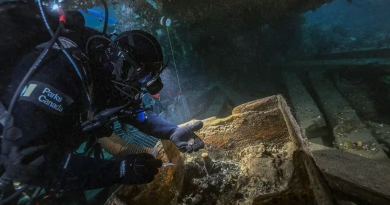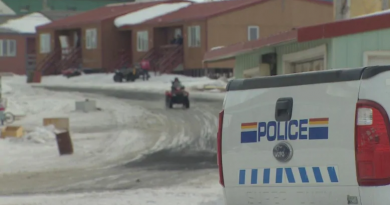Justice in Nunavik – What the candidates say …

As part of Eye on the Arctic‘s special report on justice in Nunavik, we reached out to all five candidates running in the Ungava riding with one question:
If your party wins on October 3, what’s the one concrete thing you’d do in the first year of your mandate to move the needle on justice issues in Nunavik?
Here’s what they told us…
Denis Lamothe, Coalition Avenir Québec (incumbent) —
There’s already been work done during the last mandate to make positive improvements to the justice system in Nunavik, examples include the implementation of videoconferencing for bail
hearings since 2019, and support of $2.25M from the Ministère de la Justice du Québec to Makivik Corporation in order to enable the implementation of several projects on access to justice
in Nunavik.
Last August, Me Jean-Claude Latraverse submitted his Report on the situation of the Itinerant Court in Nunavik. This report, requested under an agreement between the Minister of Justice and Makivik Corporation, includes 60 recommendations and offers several solutions to tangibly improve the delays and conditions surrounding the itinerant court sessions.
Solutions will be developed with the Inuit, for the Inuit.
Tunu Napartuk, Quebec Liberal Party —
The government first needs to acknowledge that there is an over-representation of Natives within the justice system. The fly-in fly-out itinerant court does not work too. There needs to be a full-time court on both coasts of Nunavik to meet immediate needs of Nunavik.
The government also needs to acknowledge the impact colonialism has had on Natives over the past 50 to 100 years. The past decisions such as High Arctic relocation and the dog slaughter have caused generational trauma that we still feel to this day. These traumas continue to hurt our people and an acknowledgement from the government will kick start healing and understanding our people needs.
Christine Moore, Parti Québécois —
We have to adapt the justice system to the reality in Nunavik and stop trying to adapt Nunavik to the reality of our justice system.
We have to considerably reduce [court] delays because they have disportionate consequences on Inuit, but there’s no consequences for having the delays.
Judges on the travelling court should arrive in communities at least one day before court sits to meet elders and the town council. Elders must be integrated into the the justice system: judges could be accompanied by a local elder at trial that could give advice; and restorative justice principals, facilitated by elders, could be integrated to find a way for offenders to make amends to their community.
Increase travelling court judges from 12 to 14 and monitor the implementation of mandatory training to make sure they understand well the reality of Inuit communities.
Alleviate the shortage of justice workers and interpreters.
Maïtée Labrecque-Saganash, Québec Solidaire —
We will comprehensively reform the legal aid program, expand coverage and extend eligibility.
We will develop, promote and encourage the use of alternative and restorative justice and diversion programs where appropriate.
We will promote access to a justice system by and for Aboriginal people.
Nancy Lalancette, Conservative Party of Quebec —
We propose a lot for Quebecers concerning reform of the Justice system, particularly in the domains of sexual offenses and domestic violence.
Write to Eilís Quinn at eilis.quinn(at)cbc.ca
Related stories from around the North:
Canada: Justice system in northern Quebec straining at the seams and devastating victims, say Crown prosecutors, Eye on the Arctic
Finland: Police response times up to an hour slower in Arctic Finland, Yle News
United States: Violence Against Women bill would expand power of up to 30 Alaska tribal courts, Alaska Public Media



